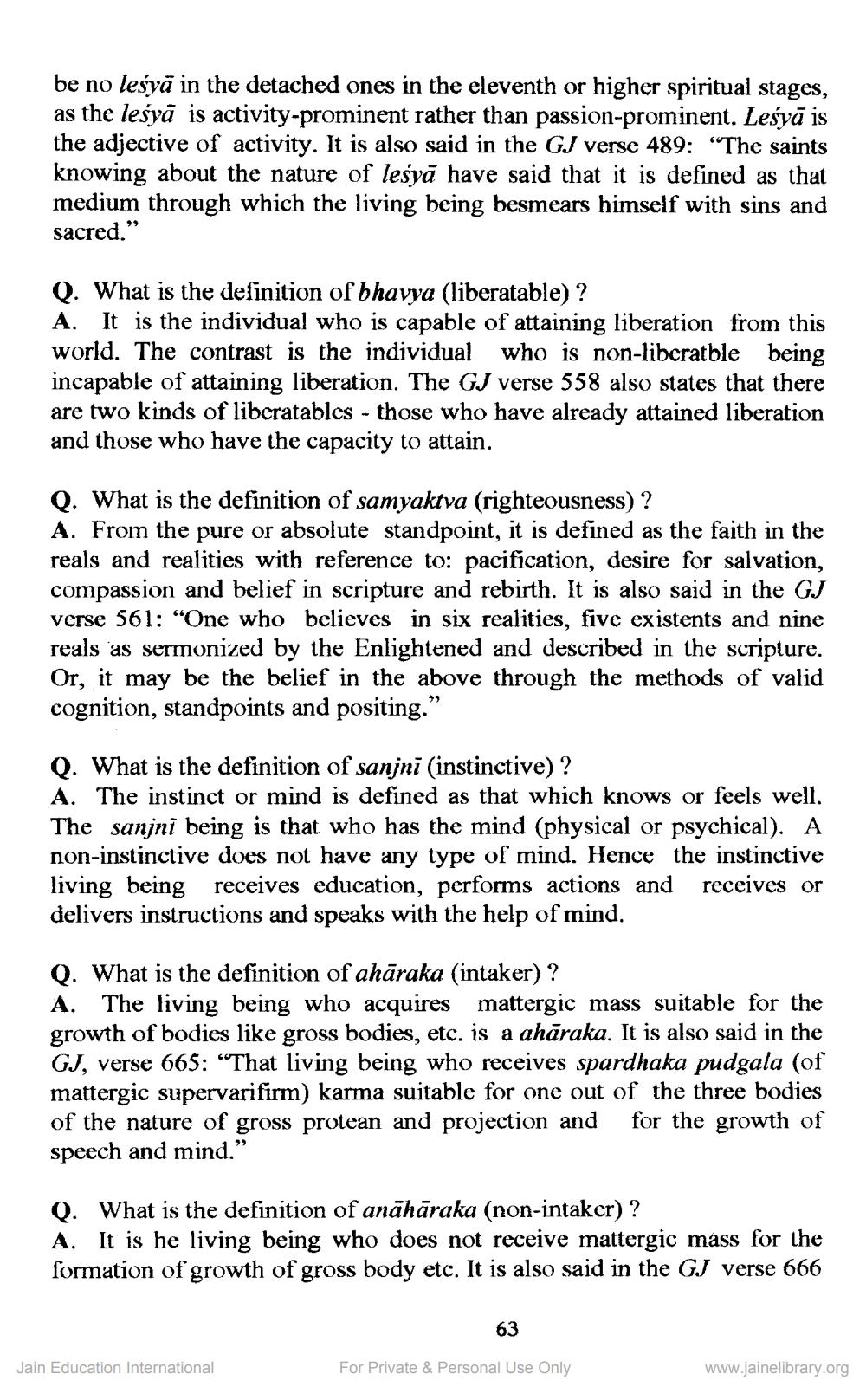________________
be no lesyä in the detached ones in the eleventh or higher spiritual stages, as the leśyā is activity-prominent rather than passion-prominent. Lesyā is the adjective of activity. It is also said in the GJ verse 489: “The saints knowing about the nature of lesyā have said that it is defined as that medium through which the living being besmears himself with sins and sacred.”
Q. What is the definition of bhavya (liberatable)? A. It is the individual who is capable of attaining liberation from this world. The contrast is the individual who is non-liberatble being incapable of attaining liberation. The GJ verse 558 also states that there are two kinds of liberatables - those who have already attained liberation and those who have the capacity to attain.
Q. What is the definition of samyaktva (righteousness)? A. From the pure or absolute standpoint, it is defined as the faith in the reals and realities with reference to: pacification, desire for salvation, compassion and belief in scripture and rebirth. It is also said in the GJ verse 561: "One who believes in six realities, five existents and nine reals as sermonized by the Enlightened and described in the scripture. Or, it may be the belief in the above through the methods of valid cognition, standpoints and positing.”
Q. What is the definition of sanjni instinctive)? A. The instinct or mind is defined as that which knows or feels well. The sanjni being is that who has the mind (physical or psychical). A non-instinctive does not have any type of mind. Hence the instinctive living being receives education, performs actions and receives or delivers instructions and speaks with the help of mind.
Q. What is the definition of ahāraka (intaker)? A. The living being who acquires mattergic mass suitable for the growth of bodies like gross bodies, etc. is a ahāraka. It is also said in the GJ, verse 665: “That living being who receives spardhaka pudgala (of mattergic supervarifirm) karma suitable for one out of the three bodies of the nature of gross protean and projection and for the growth of speech and mind."
Q. What is the definition of anāhāraka (non-intaker)? A. It is he living being who does not receive mattergic mass for the formation of growth of gross body etc. It is also said in the GJ verse 666
63
Jain Education International
For Private & Personal Use Only
www.jainelibrary.org




